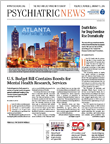Children growing up in poor urban communities are often exposed to a barrage of negative stressors (violence, trauma, pollution, and substance use, to name a few) that adversely affect their development. Rather than trying to prevent or avoid these negative influences, researchers have sought ways to mitigate their impact. One psychologically and cost-effective approach that shows promise is incorporating a mindfulness-based program into the school curriculum, according to a study published online December 18, 2015, in Pediatrics.
Mindfulness involves the use of meditation, yoga, and body awareness to promote relaxation and reduce stress; some evidence suggests that mindfulness-based programs can help reduce symptoms of chronic psychiatric disorders such as anxiety or depression in both adults and children—though it has not been tested in socioeconomically disadvantaged, minority children.
In a small pilot study carried out in 2014, researchers at Johns Hopkins School of Medicine found that a 12-week Mindfulness-Based Stress Reduction (MBSR) program adapted for middle-school children could help them lower stress and improve their ability to cope with life events. They set out to expand and validate this program in two Baltimore City public schools with significant need.
Three hundred middle-school students (grades 5 to 8) were randomized to receive either the modified MBSR—which is a group-based program that includes both discussion of the importance of mindfulness as well as the practice—or an age-appropriate health education program that covers topics such as nutrition, exercise, adolescence, and puberty.
After 12 weeks, the students in the MBSR program showed significant improvements in their psychological functioning and coping, reporting lower levels of depressive symptoms, posttraumatic stress symptoms, self-hostility, rumination, and somatization.
Erica Sibinga, M.D., a coauthor of the study and an associate professor of pediatrics and adolescent medicine at the Johns Hopkins Children’s Center, was extremely encouraged by these findings but noted that more work needs to be done before broader implementation of such programs.
“Mindfulness is a complex thing to teach, whether it’s for adults or children,” she said. She pointed out that the instructors in this study were all highly experienced and well versed in MBSR. “We want to be careful and thoughtful around how a school intgrates a program into existing curricula, as well as actively and continually evaluating that program and the instructors.”
She also pointed out that this program had the advantage of receiving support from Johns Hopkins and Elev8 Baltimore, a nonprofit organization aimed at utilizing school-based and after-school programs to improve the lives of local children and their families.
“We know this does not reflect the resources that most schools have to work with,” she said. “However, this is a group-based prevention program with manageable costs, and when you consider the potential reduction in behavioral and mental health interventions needed for these children down the road, the program-associated costs could quickly be offset.” ■
An abstract of “School-Based Mindfulness Instruction: An RCT” can be accessed
here.
